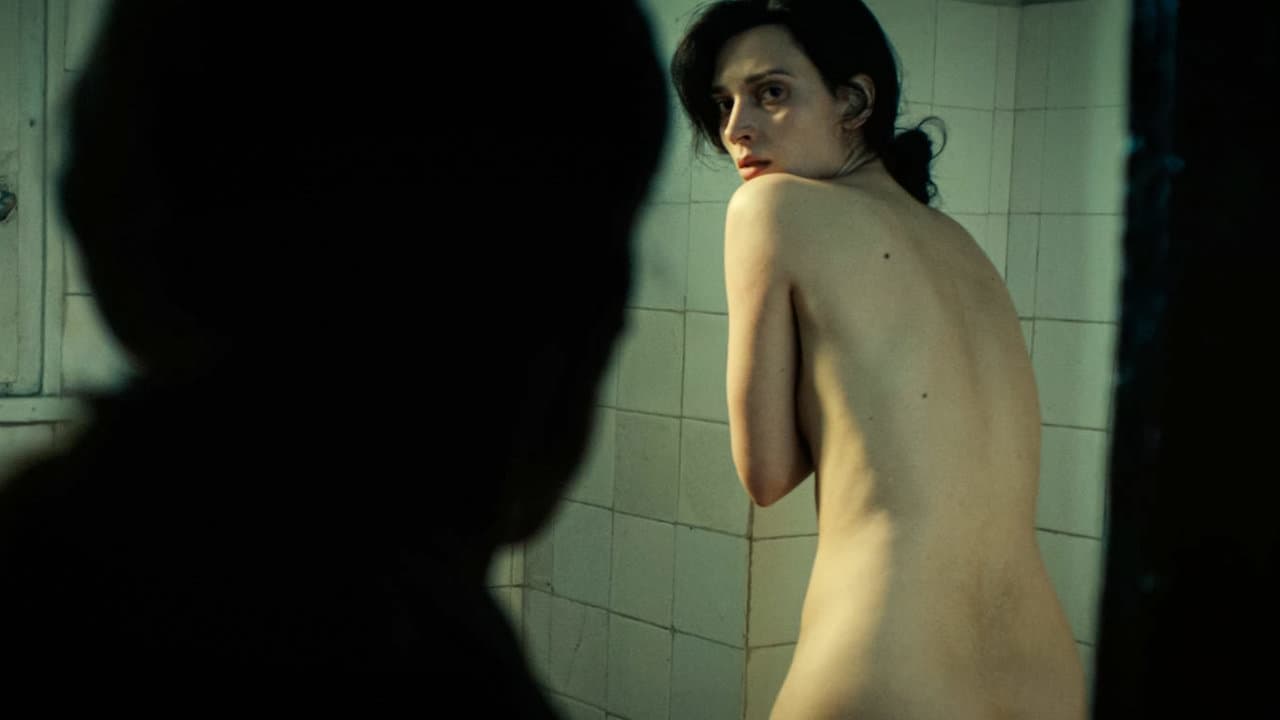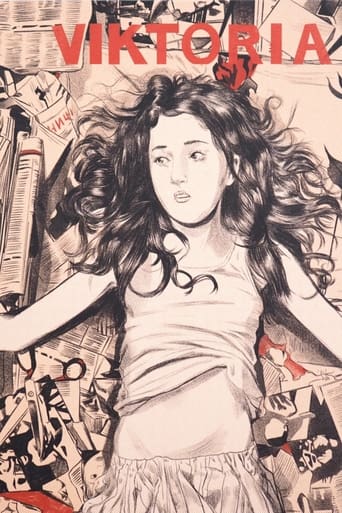



Very best movie i ever watch
I don't have all the words right now but this film is a work of art.
View MoreThere is, somehow, an interesting story here, as well as some good acting. There are also some good scenes
View MoreThe film may be flawed, but its message is not.
I agree with another reviewer that this is a masterpiece. I've never seen a movie by, for, and about women that was so powerful. The reviews for this film will probably come down along gender and/or religious lines. What I took away from this movie was the point that not all women want to have children and no amount of pressure from men, religion, family, or society can change that. When safe abortion was or is not available, many teenagers find themselves ill prepared physically, emotionally, or financially to care for a child since they are still children themselves. When illegal or haphazard abortion techniques are used, women die. So, it's important that children are expected and wanted. While it's very important that a child be loved, the person doing the nurturing doesn't have to be the mother.The lead actress poignantly portrayed the type of despair that women feel when their lives are predetermined by pregnancy, men, relatives, religion, politics, or society. You don't have to live in a repressive regime like Bulgaria to be a woman under stress to become a mother. That can (and does) happen everywhere in the world. In most societies, women suffer scorn and social ostracism if they don't want to get married and have children. Mostly, women don't have access to education or opportunity to do anything other than marry and reproduce. The female body seems to be viewed more as function.It was ironic that the Bulgarian politicos thought that a baby girl with no belly button was emblematic of the new age of communism. I wonder how they would have celebrated if it was a boy with no penis. Maybe that's a topic for another movie.
View MoreViktoria (2014)is the best Bulgarian movie after 1989, because it is honest and personal "coming of age story" about the transition from socialism to liberal democracy in Bulgaria, told from unique female perspective.( And if this is not enough it was shot from the best cinematographer, edited from the best editor( Alexander Etimov 1976-2014 RIP) and scored from the best film composer in Bulgaria at the time.) You cannot argue with the film because it is pure emotion and vision. It is not a statement, it is a dream. Even if you not agree with it's surreal picture of communist Bulgaria, you must accept it as a personal memory. This film is an apology for every man's right to have his/her own opinion and memory of the changing world around. Victoria is the best Bulgarian movie after 1989, not because it is showing a new way to make cinema, but it is showing a new way (for Bulgaria) to tell stories. A way to tell your personal stories, without vanity and fear. A way to be completely honest and sincere, not only with the audience, but mostly with yourself. This film is not about "Art", it is about Life. Life as a personal and very intimate experience. In Bulgaria for many years life and art were collective, it is a trend that it is going on even now. People and artists still do not have the courage to speak for themselves honestly. They always "represent" some "public opinions". They "create projects" which are expected to be liked from their "target audiences". ( specially film festival audiences! ) It is not very different from the times before 1989, when art and life were a "project" for collective well-being. In the past all the "stories" needed to be the "correct" ones and this trend continues in another way today. Today life and art are just a "project for personal well-being", which doesn't include honest storytelling. You are not allow to just "be" yourself, to tell your story, the way you feel it. You must "create" yourself using a lifestyle model. It looks like to be a completely free man who is able to tell the story of his/her life as he/she feels it is equally difficult thing in both sides of the Berlin wall. In my opinion this is what makes the movie "Victoria"- The Best Bulgarian Movie After 1989! Because it gives you perspective from the "both sides" and makes you think about your personal experience in this period and find out how confusing was for all of us, but still how we miss it and love it. At the end "we really don't know life at all" but still we can love it. Because it was Our Life, the live of our parents and grandparents, it was not a lifestyle model. The naked truth is that we were happy kids in communist Bulgaria, as much happy, as the kids in the "other side". Happiness is not a political concept, it is not in our desires, it is not about lifestyle and social position. Happiness it is a feeling from the childhood when we first discover the world and it is deeply connected with the image of our mothers and fathers.Great cinema teach us that Life is Beautiful (La Vita è Bella 1997), even in a concentration camp, if we are with a loving parent. The way to happiness always goes backwards, with the years... As the director Maya Vitkova said in an interview: "My goal is people from the audience to call their mothers after the film is over!" "I've looked at life from both sides now, from win and lose, and still somehow it's life's illusions I recall, I really don't know life at all." Joni Mitchell - Both Sides, Now from the LP "Clouds", 1969P.S. The world really needs more "woman's touch" in 21st century cinema and not only in cinema. Call your mothers and do not write hateful reviews, please. Keep Calm and Surrender To The Divine Feminine! :)
View MoreThis is one of the stupidest and ugliest movies I've seen within the last 5 years and I feel very sad and ashamed of the fact it was produced in my country. I am not surprised it won some awards in USA. This guys are willing to give everything when they find even the smallest piece of anti-communist propaganda. I thought Bulgarian movie-making has already passed the time of that kind of cheap propaganda. The story is thin and meaningless and could be told in 10 min. It might be interesting to your friends or to your shrink, Mrs. Vitkova, but you have no right to torture the audience for 3 hours with it. Regarding the actors, almost all of them were excellent, especially Anastasia Ingilizova and Mariana Krumova, who were perfect as always. But why, the hell, did you think that your nieces Kalina and especially Daria had anything to do with acting? Not to mention that it was a real challenge for me and my friends (all natives from Bulgaria) to understand Daria talking in... Bulgarian. This child doesn't need a movie-shooting, she needs a medical treatment for her nose, her third tonsil or whatever her problem is. She can hardly speak and cannot close her mouth entirely, because she cannot breath through her nose at all. (But that's not the reason she is a bad actress, of course.) And in the end there was this scene with the totally naked dead grandma. It was ugly, awful and humiliating. You said, Mrs. Vitkova, that you based the film on what happened in your life. In this regard I have a question for you: Did you really hate your grandma so much, so you made this scene so disrespectful? During the whole film you tried to convince us that you cared for her, you began to love her... Please do not try to justify yourself with the intent of showing the Caesar scar. It could be done with some art contrivances, not porn ones.
View MoreViktoria is an ambitious, fully conceived and developed first film. It portrays the lives of three multi-generational women connected to one another by little else than birth. Concurrently the journey mirrors the history of everyday life in Bulgaria under communism and after its fall. The muted color pallet of the film, the aesthetically stark cinematography is complimented by the music. The brevity of words between these women adds to their isolation from one another. The monotony of every-day life, the isolation, the lack of connection between mother and daughter, the absence of any hope but to escape one another, the wretchedness of life is thoroughly achieved.A beautiful and highly symbolic film of great beauty and quietness.
View More